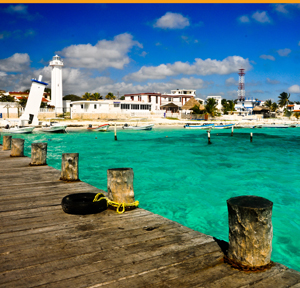Offshore
INTERVIEW: In Aftermath Of Brexit, Some HNW Migrants Turn Gaze To Caribbean

A firm specialising in migration and citizenship advice in regions such as the Caribbean has, like many others, seen a surge of enquiries following the UK's momentous vote to leave the European Union.
Brexit has happened, and it will have a big effect on migration
patterns and the attractions of certain types of residency and
passport. One consequence of the 23 June referendum result,
according to CS Global
Partners, a firm specialising in such matters, has been a
surge of enquiries, giving it the chance to showcase regions such
as the Caribbean.
“Since the vote, Europeans living in the UK have been calling our
offices to learn about how they can become UK citizens,” Micha
Emmett, group managing director of CS Global, told this
publication.
The referendum result has affected citizenship requests for
regions outside of Europe and the UK. Emmett said that the
Caribbean region is drawing attention, with enquiries for
citizenship by investment (CBI) programmes in the Caribbean
rising by more than 30 per cent in a matter of days (she declined
to give an exact figure). “These enquiries are coming both
from UK and non-UK residents, who are concerned about their
future following the decision to leave the EU,” she said.
Emmett said one benefit of the Caribbean for those seeking links
with the UK is that the region has strong ties to the UK, as
demonstrated by membership in the Commonwealth bloc of nations.
The firm argues that CBI programmes have gained global prominence
in recent years. The Caribbean twin-island nation of St Kitts and
Nevis pioneered this approach in 1984.
There are many unanswered questions about how migration may
unfold in the future between the UK and the rest of the EU but a
number of options merit attention, Emmett said.
“Citizenship of another country can open up a wealth of new
opportunities. This is particularly true of citizenship of the
Caribbean, where nations such as Grenada can provide numerous
benefits to citizens.
"I’m not just talking about lifestyle benefits - such as
excellent education options and a safe environment in which to
raise children. Businesspersons look to these nations as
alternative means of facilitating international trade, and to
reduce the impact of any change in trade agreements between the
UK and the EU. Citizens of Grenada, for example, can enjoy
visa-free travel to about 120 countries - including trade giant
China, a low tax-regime, and the ability to apply for a
US E-2 Visa, which can facilitate entrepreneurial activity,”
she said.
Asked what sort of countries are drawing attention from wealthy
migrants, Emmett said people are considering options for dual
citizenship – which they did not do prior to the referendum. “The
vast majority is looking at citizenship by descent, although some
are also looking at second citizenship in other Commonwealth
jurisdictions,” she said.
“A large number of individuals are confused about the meaning of
the [referendum] vote, and hope to gauge our opinion on what will
be Britain’s next move with respect to the free movement of
people. We believe that there will be a long consultation period
prior to Britain’s exit, which will be followed by a transition
period. This gives people time to think through their options
without panicking,” she said.
“Our main line of advice, which we have been giving for years, is
that a second citizenship is an insurance policy, and can provide
security even when everything else seems steeped in uncertainty,”
Emmett said.
“CS Global Partners did put contingencies in place to handle
queries about Brexit. The result was surprising for everyone. We
are interested to see what will happen next,” she said.
(To see a previous interview with the firm, click here.)